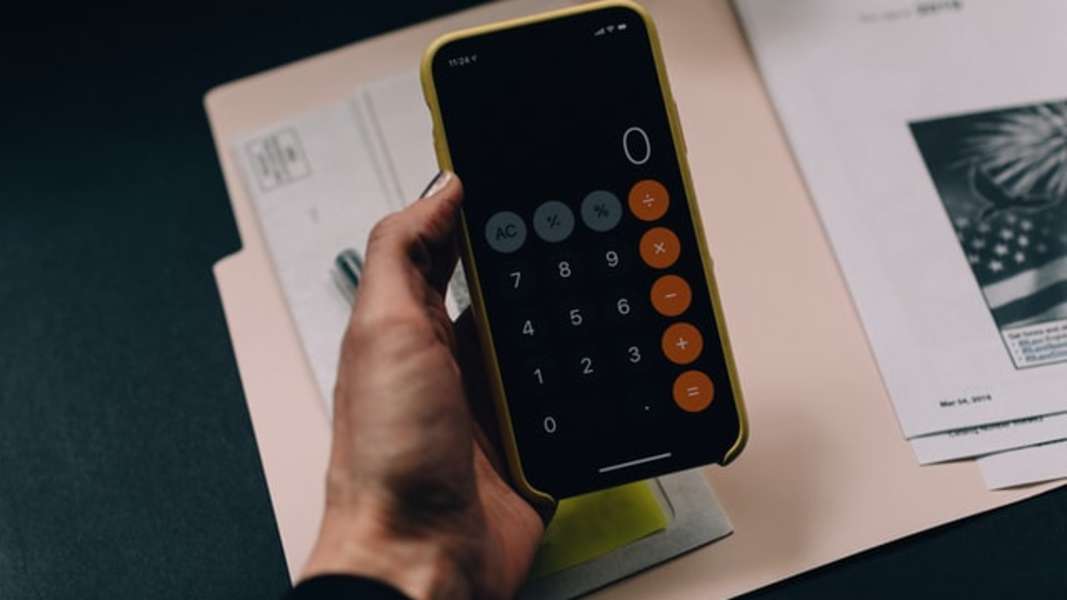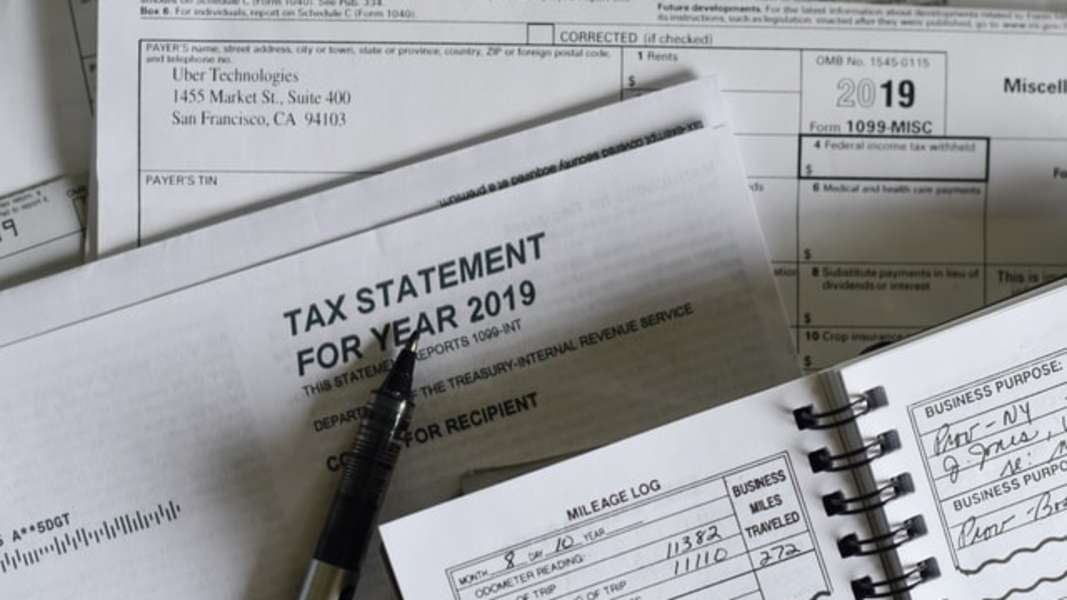
How To Hire A Tax Preparer
May 24, 2022

Tax preparation is the process of preparing tax returns for annual submission. A tax preparer helps individuals and companies to accurately, legally and efficiently work through their numbers and file a tax return on time.
For many people, especially those who don't have a head for numbers, filing a tax return can be an incredibly lengthy and stressful process. But that's where a tax preparer comes in. With their numerical skills, knowledge of tax law and understanding of how the process works to benefit both individuals or companies and society, they're perfectly placed to ease the burden and ensure the return filed is as accurate as possible.
As you'd expect, tax preparers need to have good numerical skills and a strong affinity for problem-solving. But they also need to be good communicators; adept at breaking down complex terminology and helping clients to work through their finances.
When hiring a tax preparer, it's important to ensure your recruitment questions and selected tests assess both technical skills and more innate abilities to find someone who can get the job done well, while also winning the trust and respect of their clients.
What should a tax preparer be able to do?
The primary function of a tax preparer is to make filing a tax return simple for the client. To do this, tax preparers need to be familiar with tax law and the intricacies of the form itself so they can accurately prepare the return while keeping clients' payments to a minimum. As well as knowledge of the rules and regulations, it helps if tax preparers are quick with numbers, good at spotting errors, and deft at working within the law while also ensuring their clients don't pay too much tax.
A tax preparer should be comfortable with people as a large part of the role involves interviewing clients and working through records alongside them. They may need to break down complex laws and principles so a client understands what's being asked of them, and they'll need to be good at listening.
As with most desk-based roles, there's also a certain amount of admin involved. Candidates will need to show they're comfortable scheduling meetings, filling out important documents, sending emails and preparing invoices. They also need to have good computer skills to ensure they're working as efficiently and effectively as possible.
Skills to look for in a tax preparer
The tax preparer you hire will need to have a certain level of technical skill and accounting proficiency to meet the daily requirements of the role.
That's why we recommend assessing for the following skills as part of your recruitment process:
Tax training: a fundamental understanding of tax law and accounting is essential to meet the requirements of the role. The level of experience and expertise you require will of course depend on the seniority and responsibilities of the specific role you're hiring for.
Accounting software proficiency: every tax preparer will need to use accounting software as part of their daily role. So it can be helpful to ensure candidates are familiar with the software you use, or show signs of being a quick learner, before hiring.
Knowledge of Microsoft Office: as with most office roles, there will be a need for your tax preparer to be competent with the Microsoft Office suite for day-to-day tasks such as scheduling meetings, sending emails, preparing documents and putting together spreadsheets and presentations.
Error checking: an ability to spot inconsistencies and errors, both in text and data, is an essential skill for a good tax preparer as the smallest inaccuracy can have large consequences.
Communication skills: communication is key. A tax preparer needs to be able to break down complex information for clients, listen to their concerns and communicate with them through the entirety of the tax preparation process.
Useful abilities for a tax preparer
Abilities are more innate skills that can help bolster an individual's technical expertise and make them even better at their job. When you're hiring a tax preparer, it can be useful to tailor interview questions and assessments to look for the following abilities:
Active listening: this is about more than just listening to what someone says, it's about making people feel heard and it's essential for any role, such as tax preparation, where communication and trust-building is so important.
Critical thinking: critical thinking is about using logic to process the strengths and weaknesses of an idea so you can decide on the best approach. It's useful for all roles that have an element of problem-solving.
Mental math: tax preparers who are able to calculate things quickly in their head will find the numerical aspect of the role easier.
Problem-solving: problem-solving will be a daily occurrence for most tax preparers. Whether it's working out why something doesn't add up, looking for missing information, or processing the rules and regulations that need to be adhered to.
Teamwork: tax preparers will need to work well with others to get the job done, but they will also need to be confident in situations, like working with clients, where they're in control and required to showcase knowledge and authority to build trust.
Which soft skills tests could I use to hire a tax preparer?
Assessing soft skills can be useful for differentiating between candidates, especially when you have a few in front of you with similar levels of expertise and experience. The following soft skills would be a real added bonus for the person you eventually hire:
Interpersonal: this test examines how well a candidate communicates with others, works as part of a team, takes instruction and knows when to lead. Tax preparers need to be able to work autonomously, as well as liaise with various people, so this test is a really useful indicator of their skills.
Communication: whether it's active listening, adapting tone of voice or understanding where people are coming from, communication skills are imperative in a job like tax preparation.
Problem-solving: solving complex problems under pressure is a really important skill, especially in a job where each day can bring new and unpredictable challenges.
Which technical or aptitude tests could I use to hire a tax preparer?
Utilising aptitude tests in the recruitment process is a great way to remove unintentional bias while ensuring you get additional information that you can use to inform your final decision. We'd recommend using these aptitude tests when hiring a tax preparer:
Numerical reasoning:an aptitude for numbers is essential for a tax preparer, and this test will give you a better sense of how confident each candidate is with different mathematical principles, and how well they can execute their knowledge under tight time pressure.
Logical reasoning: thinking logically can help a tax preparer respond effectively to challenges and solve problems under pressure. It's a really useful aptitude test to set for a tax preparer.
Error checking: this test asks candidates to spot errors in text and data sets to see how skilled they are. Tax preparers need to be able to see even the smallest inaccuracies, so this is a really useful aptitude test to use as part of the recruitment process.
Microsoft Office: competence in the Office suite will help candidates with the daily administrative side of the tax preparer role - tools including Microsoft Excel.
Our recommended test battery for a tax preparer
Finding the right combination of tests and interview questions is the best way you can strengthen your recruitment process to hire the best possible talent.
We'd recommend the following test battery:
Numerical reasoning: an aptitude for numbers is essential, so use this test to ensure candidates are skilled with basic mathematical principles, analysing data and answering accurately under pressure.
Error checking: working through text and data sets to spot errors is a great way for candidates to prove that they have the attention to detail needed to be a successful tax preparer.
Communication skills: being able to work with other people by communicating effectively is important. This test will show you which candidates are strongest in this area.
Microsoft Excel: is an essential software that tax preparers use on a daily basis.
For further information on hiring a tax preparer, visit Neuroworx's tax preparer test guide.
Boost your hiring power.
Start using Neuroworx today.
Talk is cheap. We offer a 14-day free trial so you can see our platform for yourselves.
Try for free




